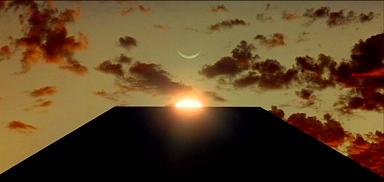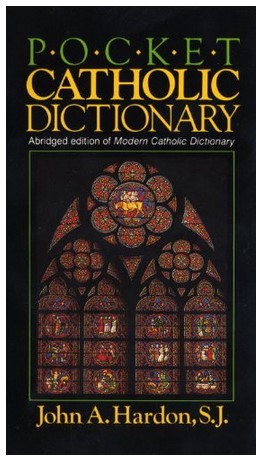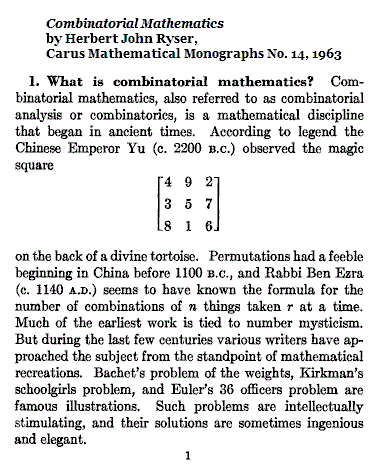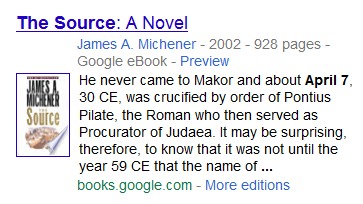|
Wikipedia: Taiji (philosophy) Etymology The word 太極 comes from I Ching : "易有太極,是生兩儀,兩儀生四象,四象生八卦,八卦定吉凶,吉凶生大業。" Taiji (太極) is a compound of tai 太 "great; grand; supreme; extreme; very; too" (a superlative variant of da 大 "big; large; great; very") and ji 極 "pole; roof ridge; highest/utmost point; extreme; earth's pole; reach the end; attain; exhaust". In analogy with the figurative meanings of English pole, Chinese ji 極 "ridgepole" can mean "geographical pole; direction" (e.g., siji 四極 "four corners of the earth; world's end"), "magnetic pole" (Beiji 北極 "North Pole" or yinji 陰極 "negative pole; cathode"), or "celestial pole" (baji 八極 "farthest points of the universe; remotest place"). Combining the two words, 太極 means "the source, the beginning of the world". Common English translations of the cosmological Taiji are the "Supreme Ultimate" (Le Blanc 1985, Zhang and Ryden 2002) or "Great Ultimate" (Chen 1989, Robinet 2008); but other versions are the "Supreme Pole" (Needham and Ronan 1978), "Great Absolute", or "Supreme Polarity" (Adler 1999). |
Wednesday, October 25, 2017
The Source (Not by Michener)
Tuesday, June 28, 2016
“Use ‘The Source,’ Luke”
See Source + Michener and The Source (Dec. 29, 2014).
Monday, December 29, 2014
The Source
Bogus religion from a bogus "research lab" —
|
Journal of Scientific Exploration,
Princeton Engineering Anomalies Research "… Consequently, the inferred models of reality are limited to those substances, processes, and sources of information that constitute conventional contemporary science. In this paper we ally ourselves with the sharply contrary position that there exists a much deeper and more extensive source of reality, which is largely insulated from direct human experience, representation, or even comprehension. It is a domain that has long been posited and contemplated by metaphysicians and theologians, Jungian and Jamesian psychologists, philosophers of science, and a few contemporary progressive theoretical physicists, all struggling to grasp and to represent its essence and its function. A variety of provincial labels have been applied, such as 'Tao,' 'Qi,' 'prana,' 'void,' 'Akashic record,' 'Unus Mundi,' 'unknowable substratum,' 'terra incognita,' 'archetypal field,' 'hidden order,' 'aboriginal sensible muchness,' 'implicate order,' 'zero-point vacuum,' 'ontic (or ontological) level,' 'undivided timeless primordial reality,' among many others, none of which fully captures the sublimely elusive nature of this domain. In earlier papers we called it the 'subliminal seed regime,' (2,3) but for our present purposes we shall henceforth refer to it simply as the 'Source.' "* References:
2. Jahn, R. G., & Dunne, B. J. (2001). A modular model of mind/matter manifestations (M5). Journal of Scientific Exploration , 15(3), 299–329. Note: * This assortment of contexts, labels, or models should not be regarded as mutually exclusive or hierarchical; nor are they isomorphic to one another. Rather, they represent different perspectives on the same basic search, and hence should be respected as collectively complementary. Where they reinforce one another, or display common features, this may indicate some degree of basic insight. Where they disagree on details, testable hypotheses may present themselves. |
This was quoted approvingly in a recent book by
Joseph Jaworski, Source (Berrett-Koehler Publishers,
1st ed. Jan. 11, 2012, pp. 2-3).

Jaworski, a lawyer-turned-guru,
in 1980 founded a cult for executives
called the American Leadership Forum.

A synchronicity cult I prefer —
the Roman Catholic Church:
Friday, May 12, 2023
Number and Time
(Title purloined from Marie-Louise von Franz.)
BCE/CE — A game with three letters … See Michener Game.
BC/AD — A game with four letters … See Eddington Game.
ABCDE — A game with five letters … See Simplex.
Thursday, April 7, 2022
The Usual Suspects
In memory of a musical that opened on this date —
April 7 — in 1949 . . .
See the same date in The Source , by James Michener (1965):

Saturday, July 3, 2021
Here, There, and Chicago
The above phrase "the intersection of storytelling and visual arts"
suggests a review . . .
Storytelling —

Visual arts —

"This pattern is a square divided into nine equal parts.
It has been called the 'Holy Field' division and
was used throughout Chinese history for many
different purposes, most of which were connected
with things religious, political, or philosophical."
– The Magic Square: Cities in Ancient China,
by Alfred Schinz, Edition Axel Menges, 1996, p. 71
A Midrash for Michener —

For a connection of the above "Holy Field"
with pure mathematics, see Coxeter's Aleph.
Friday, September 30, 2016
“Profound archaeological wells”
From a review by Dara Horn of …
Critics, Monsters, Fanatics, & Other Literary Essays
by Cynthia Ozick
Houghton Mifflin Harcourt, 224 pp., $25
"… the credo that has emerged throughout her career:
against idolatry, yes, but also in favor of the particular,
context, rootedness, the profound archaeological wells
from which no writer can be removed without removing
his or her greatest powers.
For Ozick herself, that archaeological well is not only Anglo-
American literature, but the far deeper well of Judaism."
— "Cynthia Ozick: Or, Immortality,"
Jewish Review of Books , Fall 2016
See also Michener's The Source in this journal.
Monday, July 18, 2016
Raiders of the Lost Art
The two wheel-like circles in this morning's previous post
suggest a review of some related (fictional) art —

Wednesday, October 28, 2015
The Tummelplatz of Jerusalem
A check of recent tweets by Alexander Bogomolny, who was
mentioned in the previous post, yields a remark of Oct. 26, 2015…
This is not unrelated to a word from Freud:
See as well "Digging Out the Truth?" (Jerusalem Post 2/25/2010)
and Michener's The Source in this journal.
Thursday, May 28, 2015
Wednesday, November 28, 2012
Thursday, April 7, 2011
Sunday, March 8, 2009
Sunday March 8, 2009
Transit Authority
In memory of
Stanley Kubrick
(overlooked in
yesterday's memorial)
| "For believers the day of death, and even more the day of martyrdom, is not the end of all; rather, it is the 'transit' towards immortal life. It is the day of definitive birth, in Latin, dies natalis." |

"'Wherever you come near
the human race, there's layers
and layers of nonsense,'
says the Stage Manager in
Thornton Wilder's 'Our Town.'"
— Today's sermon
from Frank Rich



For more layers, see
James A. Michener's
The Source.
Sunday, December 14, 2008
Sunday December 14, 2008
The New York Times of Sunday, May 6, 2007, on a writer of pulp fiction:
His early novels, written in two weeks or less, were published in double-decker Ace paperbacks that included two books in one, with a lurid cover for each. “If the Holy Bible was printed as an Ace Double,” an editor once remarked, “it would be cut down to two 20,000-word halves with the Old Testament retitled as ‘Master of Chaos’ and the New Testament as ‘The Thing With Three Souls.'”
Epigraph for Part One:
Epigraph for Part Two:
“Beware lest you believe that you can comprehend the Incomprehensible….“
Friday, October 13, 2006
Friday October 13, 2006
To a
Dark Lady*
“Something inside
is telling me that
I’ve got your secret.
Are you still listening?
Fear is the lock, and laughter
the key to your heart….
… you are what you are.
And you make it hard,
and you make it hard….”
* Suggested by…
(1) A Harvard Crimson opinion piece
of Oct. 12, “A Psychosexual Sham”
(2) Remarks on the sin of masturbation
(Ask Father Hardon)
(3) Shem was a sham…. (FW I.7, 170).
See also the Crimson on Jack Nicholson
and Log24 on a food joke.
“Ours is a very gutsy religion, Cullinane.”
— The Source, by James A. Michener
Tell it to James Joyce.
Thursday, February 16, 2006
Thursday February 16, 2006
Rabbi Yehuda Chitrik, storyteller
From James A. Michener‘s The Source:
“Trouble started in a quarter that neither Uriel nor Zadok could have foreseen. For many generations the wiser men of Zadok’s clan had worshipped El-Shaddai with the understanding that whereas Canaanites and Egyptians could see their gods directly, El-Shaddai was invisible and inhabited no specific place. Unequivocally the Hebrew patriarchs had preached this concept and the sager men of the clans accepted it, but to the average Hebrew who was not a philosopher the theory of a god who lived nowhere, who did not even exist in corporeal form, was not easy to comprehend. Such people were willing to agree with Zadok that their god did not live on this mountain– the one directly ahead– but they suspected that he did live on some mountain nearby, and when they said this they pictured an elderly man with a white beard who lived in a proper tent and whom they might one day see and touch. If questioned, they would have said that they expected El-Shaddai to look much like their father Zadok, but with a longer beard, a stronger voice, and more penetrating eyes.
Now, as these simpler-minded Hebrews settled down outside the walls of Makor, they began to see Canaanite processions leave the main gate and climb the mountain to the north, seeking the high place where Baal lived, and they witnessed the joy which men experienced when visiting their god, and the Hebrews began in subtle ways and easy steps to evolve the idea that Baal, who obviously lived in a mountain, and El-Shaddai, who was reported to do so, must have much in common. Furtively at first, and then openly, they began to climb the footpath to the place of Baal, where they found a monolith rising from the highest point of rock. Here was a tangible thing they could comprehend, and after much searching along the face of the mountain, a group of Hebrew men found a straight rock of size equal to the one accorded Baal, and with much effort they dragged it one starless night to the mountain top, where they installed it not far from the home of Baal….”
Valentine’s Day, 2006,
having had a heart attack
on Feb. 8, 2006–


The above monolith is perhaps more
closely related to El-Shaddai than to
Madonna, Grammy Night, and Baal.
It reflects my own interests
(Mathematics and Narrative)
and those of Martin Buber
(Jews on Fiction):

|
Saturday, July 24, 2004
Saturday July 24, 2004
Is Nothing Sacred
(3/09), continued…
"With a holy host of others
standing 'round me
Still I'm on the dark side
of the moon
And it seems like it goes on
like this forever
You must forgive me
If I'm up and gone to
Carolina in my mind."
— James Taylor
"The town of Mount Pleasant
is known for its excellent
public schools, some of the best
in the Charleston School District
and in the State."
|
Assignments from
|


The Agony
and the Ecstasy
and
a mandorla,
symbol of the Episcopal
Diocese of South Carolina,
from Log24 entries,
Oct. 4-7, 2002














